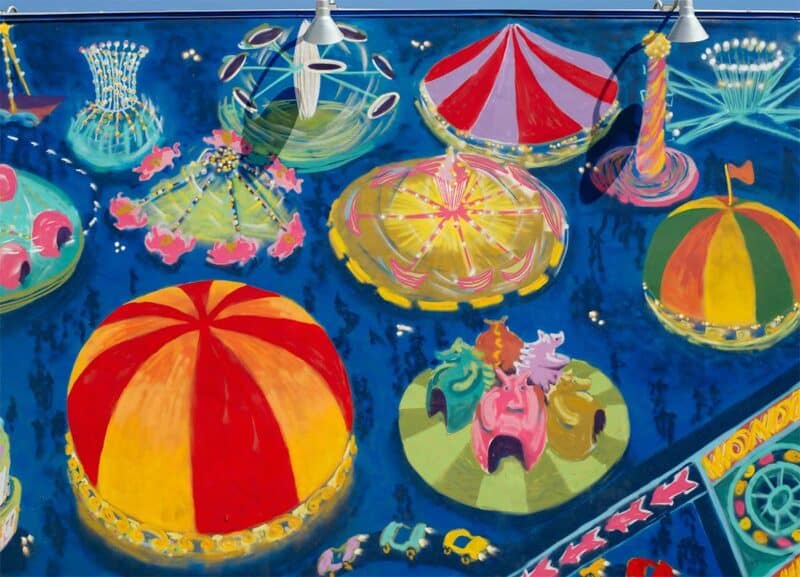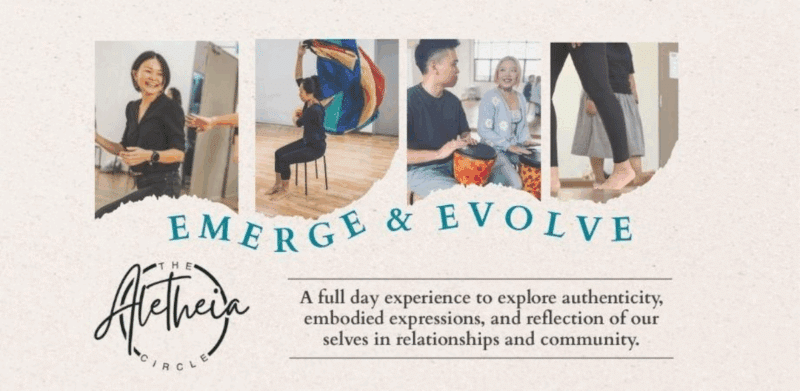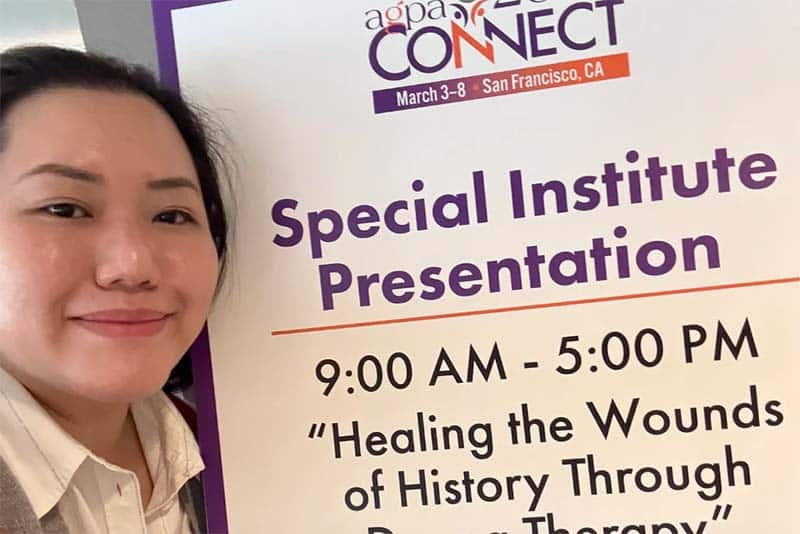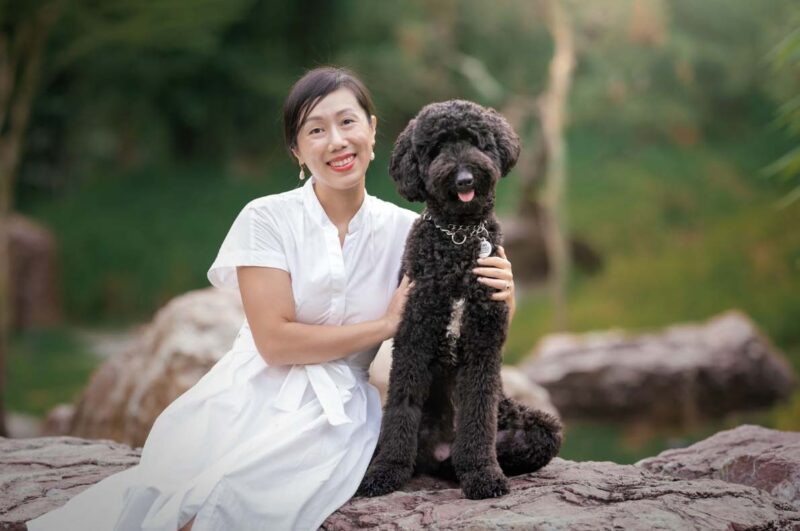You may be thinking, from what I know about existential therapy, it sounds negative, dark, heavy, pessimistic and/or depressing. I’m not sure if it will make my life more depressed and anxious than I already am.
It’s true that existential psychology acknowledges the inherent suffering in human existence, but this is not a call to embrace suffering itself. Instead, it encourages us to accept suffering as a part of life and, more importantly, to learn from it.
In my own experience, existential psychology books and articles can be quite difficult to comprehend. The abundance of jargon, hefty phrases, and unfamiliar terms like “being-in-the-world,” “Dasein,” or “ontological and ontic” can easily intimidate newcomers. I vividly recall that daunting feeling a decade ago!
It’s a shame if we let this initial complexity discourage you from exploring a field that holds such profound insights into our human experience. My motivation to write this article is then to simplify existential psychology and therapy for you, hoping that it resonates with your lived experience as a fellow human being, earnestly striving to navigate the complexities of life.
A Philosophy of Resilience, Not Despair
It was Viktor Frankl’s book Man’s Search for Meaning that first introduced me to the field of existential psychology. Back then, more than a decade ago, the book presented me with such positivity and hope despite the harsh conditions through which Frankl gave birth to his ideas.
“Everything can be taken from a man but one thing: the last of the human freedoms—to choose one’s attitude in any given set of circumstances, to choose one’s way.”- Viktor Frankl
Let’s turn to another famous existential philosopher, Albert Camus, for more insight. Through his book, The Myth of Sisyphus, he explored how a clever and tricky king named Sisyphus angered the gods with his actions. As a punishment, he was given a never-ending task.
His job? To roll a heavy boulder up a hill.
But here’s the catch: every time he got it to the top, the boulder would just roll back down, and he had to start all over again. It seemed like a never-ending, pointless job.

Now, think about this:
What if your life felt a bit like Sisyphus’ never-ending task?
You work hard, face challenges one after another, and sometimes it seems like everything you do is in vain.
That’s the idea of “the absurd” – when life seems meaningless and a bit crazy.
But here’s where the rebellious spirit comes in. Despite the absurdity of his task, Sisyphus didn’t give up. He didn’t let the meaninglessness bring him down. He chose to keep pushing that boulder with determination and a bit of defiance.
Here is where existentialists share this spirit.
We are not champions of despair, but advocates for resoluteness and courage.
Like Sisyphus, we can choose our attitude toward life’s absurdities. We can rebel against the idea that everything is meaningless and find our own meaning.
Just as Albert Camus suggested, we can face the challenges of life with a fighting spirit, finding purpose even in the face of the absurd. As he declared: “The struggle itself toward the heights is enough to fill a man’s heart. One must imagine Sisyphus happy.”

Existential Relatedness, Uncertainty and Anxiety
More than just the existential givens that we are familiar with (e.g. death, freedom, isolation and meaninglessness), we need to consider what makes these themes existential.
Well, think about it. Even doctors, lawyers, social workers or policy makers consider these themes.
Agreeing with Ernesto Spinelli, what gives existential therapy its flavour is its foundational principles of relational, uncertainty and anxiety. These experiences are what make us human.
We, human beings, are fundamentally relational. From the very instance of birth, we are thrown into a web of interrelations in a world occupied by other human beings and non-human beings/objects alike.
Anything that I can say that I am or am not is not just dependent on some internal psychic awareness. It’s a relational understanding that emerges through all our interactions with the world and all the world’s interactions with me.
Whether direct or indirect, our actions influence others by creating ripples through the web of relations in which we are embedded. For example, while we may not intentionally or directly exploit children, our seemingly “innocent” and unaware buying of clothes made by fast fashion indirectly exploits children working in sweatshops at the other side of the world.
Let’s give another example, one that is hopefully closer to our lived experiences. Say we are feeling sad. We have probably all felt sad at one time or another. (I hope you have. Sadness is a very useful emotion!)
However, just because we know how sadness feels does not mean that all of us experience it in the same way. Some of us relate to sadness by binge eating. Others experience sadness by crying under the blanket covers while you may prefer to watch a sad movie on Netflix.
Our experience of sadness are varied because we are connected to our environment and past experiences differently.
What does this mean for us in our relationships?
That we can never predict how someone else will relate to the same reality as us. We cannot predetermine how others will respond to what we say. No matter how hard we try to prepare ourselves in social situations or to hope to steer a conversation in a way that will make us more comfortable, we can never predict how others will respond.
That can be quite unnerving, isn’t it?! To not know how the other person will respond.
This brings us to the second existential principal: Uncertainty.
The openness of existence forces our acknowledgement that uncertainty—as much as we may pursue the comforts of certainty—remains a constant given. At any moment, all structures of meaning, knowledge, values, beliefs, sense of self, your relationship with others and the world, are subjected to challenge, reinterpretation, and destruction.
On top of that, when we tear down the veil of rationality, certainty, and structure, all of which characterizes modern society, we uncover the processual nature of reality: time flows, and every single moment of time is never to be repeated, never identical ever again.
Yet, amidst the uncertainty, we are still called to make decisions in our lives. We still must decide if we want to confront our fears, speak up for ourselves when we feel marginalized or we want to change careers or settle down with the partner you have dated for years.
As Sartre says, we are condemned to freedom.
Freedom not in the sense that you can truly change everything, such as where we are born, but freedom to reinterpret your experience. While such freedom may be liberating, the vast selection of perspectives and actions one may adopt could cause overwhelming paralysis and anxiety.
You can decide to not to choose but that in itself is choosing.
What if it was the wrong decision? What if after you’ve made a choice, a better choice comes up? What if I regret making the decision?
With relationality and uncertainty, then, comes existential anxiety—that inevitable sense of unease and insecurity in your existence.
In existential thought, then, existential anxiety is neither avoidable nor a pathology, but a given of human existence that we must learn how to live with. Existential anxiety is a normal part of our human condition.
We cannot get rid of anxiety even if we wanted to. I would add, you would not want to remove, cure, overcome or heal anxiety. At healthy levels, anxiety can be life-enhancing.

Living with Paradox
Much of our lives we strive tirelessly—sometimes with desperation—for certainty and comfort. After all, who would want to live constantly in anxiety, uncertainty, and tension? Well, existentialism argues there is no way out of that tension, and we must find ways to navigate and embrace it.
The tension we feel emerges from the inherent paradoxes that characterize our existence. Some examples: the only certainty in life is uncertainty; the constraints of freedom; the emergence of individuality from embracing collectivity; the flourishing of life from confronting death.
It is when we run away from the binaries of paradoxes by pursuing only one of the extremes like certainty, that we beget more tension. Eventually, we lose touch with our existence, even if we are physically alive.
The existentialists say: Don’t run. Lean into it.
We will constantly be faced with irresolvable tension in our lives, and there is never going to be a completely satisfactory solution. In fact, much of the discomfort we feel deep down doesn’t come from the inherent paradoxes and tension of life, but from our running away from it.
All we can do is be truthful to our experiences. Don’t try too hard to convince ourselves that we should have another kind of experience and existence. Confront and embrace the one we are in right now and explore the possibilities within it.
When we hold that tension, instead of refusing it, you might be pleasantly surprised by the paradox of life.
An apt analogy would be how a tightrope walker navigates their way on the tightrope. The tightrope must be taut: a slack rope leads to the tightrope walker’s fall. In the same way, we must hold tightly, under our control, the paradoxes that is the rope of life on which we all balance, lest the paradoxes control and overwhelm us instead—and we fall.
This balancing act isn’t merely a matter of physical skill in balancing one’s weight: it is more so a visceral experience of the tightrope walker’s navigation of uncertainty, fear, and anxiety from the possibility of falling.
Wellness, then, isn’t at the ends of the tightrope. Rather, wellness is knowing how to navigate those emotions we will feel as we balance on the rope of life that we all must walk. When we are able to embrace the paradoxes of life and the emotions that come with it, we may begin to enjoy the view from up above.

Existential Validation: Coming into the World
Have you ever encountered someone, during which you experienced a profound sense of being alive, that you exist? I have.
Once, right before graduating from university, I went out for dinner with a group of friends, one of whom I was only recently acquainted with. While we were waiting for the bus, she shared that she was very stressed by the pressure from her parents to find a job right after graduation, which we did not expect as she was someone with a cheerful demeanor.
Someone suggested that she can share with her friends, us included.
She then lamented how her friends do not take her seriously when she tries to be serious. But she noted that’s partially her fault because she always laughs off, and makes jokes of, her own worries, which makes her friends laugh, too.
Unsurprisingly, she shared in a lighthearted tone, again joking about her concern. My other friends laughed along, too, consoling her jokingly. However, I sensed the sincerity behind her concern. I felt that deep down she didn’t feel seen and heard.
While others were making separate conversation, I took the chance to talk to her. In a serious but warm tone, I suggested to her: maybe it’s not that her friends don’t care about her; I believe they probably don’t wish to be overbearing, so they’re waiting patiently for when she’s ready to be vulnerable. She didn’t attempt to laugh off my words. Instead, as though she has contemplated my words carefully, she responded seriously and sincerely: “you’re right… maybe I should try to be serious about myself.”
That whole exchange lasted only 10 seconds, after which we both joined the conversation amongst our friends. However, in that 10 seconds, I felt like only the two of us existed in the world, that we were alive. The chatter around us, the engines of cars rushing up and down the road, were drowned out in the background by our small conversation.
The only way I could describe that experience is existential, as though we truly saw and heard each other. Although I was the one “dispensing advice,” I felt alive from taking someone seriously and in turn being taken seriously by them.
In those encounters, not much was said. It wasn’t that the person fully understood what I was going through; in fact, that is quite impossible for we all live under completely distinct circumstances.
Yet, through our tone, choice of words, our gaze, and our energy, we conveyed a felt sense of at-stake-ness in both our ironic attempts to continue existing in the world as human beings. Despite our differences, I felt a deep sense of connection to, and affirmation of, the very core of my being and theirs.
It wasn’t so much about the content and meaning of what was said, but the very act of articulation itself—the willingness to encounter one another sincerely and authentically, that through one another’s presence we came into existence in the world, finally alive.
During those encounters, what mattered was neither my grades, my occupation, my looks, my social status, nor the idea that “I am so-and-so.” What mattered was my trying my best with what I have to continue living. They affirmed the simple fact that, “I am,” therefore, I matter.
In existential therapy, we call that profound sense of connection and affirmation, existential validation.

Existential therapy isn’t about the “treatment” of a “sick” person.
What is existential therapy if it’s not about treatment of a sick person? It is the therapeutic element lies in the mutual validation of existence between the therapist and client—between human beings.
Many of our daily interactions are instances of social validation, not existential validation. The former usually involves a dance of power exertion over social identity and status, which paradoxically is validation grounded in the denial of another’s place in society and the valorization one’s own. In that process, we deny one another’s existence as human beings.
In contrast, existential validation is the bestowment of existence from one being to another. In this sense, aligning with the existential principal of relatedness, existential therapy argues that one’s existence occurs outside of them and between another’s existence.
As Dr. Miles Groth succinctly posits: “Only another human being can observe and attest to my existence.”
However, existential validation is dual: it must happen both ways, not only from the therapist to the client. The reason for the client’s existence not being validated is because of their own failure to validate the existence of others.
In existential therapy, the primary goal is to reveal the client’s existence through mutual existential validation.
As the therapist illuminates the client’s existence to them, perhaps, the client may begin to validate the existence of the therapist and in turn of others, so that the client may once again come into the world, finally alive.
About the Co-Author: Gary Wee
A recent Anthropology graduate from Yale-NUS College, and an incoming student pursuing a Masters in Counselling. If I were to describe myself in a sentence — which is impossible, but I’ll try nonetheless — I’m currently someone who’s in a perpetual existential mood! I invite you to join me on my journey of writing to make sense of that mood, myself, and this crazy, complex world. I’m not following a fixed structure, so I don’t know what I would come out of this conviction — I guess we can only find out as I write!
About the Author
Hello, I’m Gary: A recent Anthropology graduate from Yale-NUS College, and an incoming student pursuing a Masters in Counselling. If I were to describe myself in a sentence — which is impossible, but I’ll try nonetheless — I’m currently someone who’s in a perpetual existential mood!
I invite you to join me on my journey of writing to make sense of that mood, myself, and this crazy, complex world. I’m not following a fixed structure, so I don’t know what I would come out of this conviction — I guess we can only find out as I write!
Hi, I'm Mag: a UKCP-accredited counselling psychologist and founder of Singapore’s first ever existential practice. My care philosophy is not to diagnose, label, or categorise but rather to work with the individual in front of me in the here and now.
My clinical credentials certainly play a significant role in defining my professional identity. But to foster a deeper connection and authenticity, I invite you to discover my other “Selves”, the various facets of who I am.












